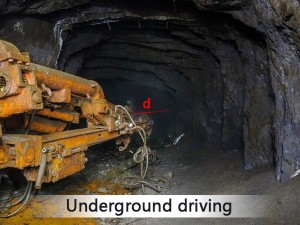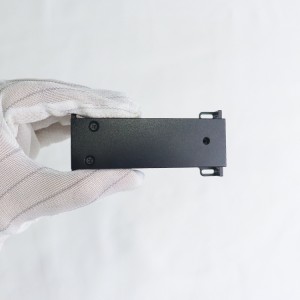Downhole Driving Survey Laser Measuring Sensor
A downhole driving survey laser measuring sensor is a specialized rangefinder module tool used in the oil and gas, mining, and construction industries to accurately measure distances and other geometric properties within a borehole or tunnel. This industrial laser measurement sensor is particularly useful for ensuring the correct path and orientation of drilling operations, as well as for monitoring the structural integrity and dimensions of the borehole.
Laser Source:
The laser measuring sensor uses a laser to emit a beam that can be reflected off the walls of the borehole or tunnel. The laser source is typically a diode laser, which is compact, efficient, and reliable.
Detection and Measurement:
The laser distance sensor measures the time it takes for the laser beam to travel to the target and back (time-of-flight principle) or the phase shift of the reflected light (phase-shift principle). This data is then used to calculate the distance to the target.
Communication Interface:
The laser distance measuring sensor often has a communication interface RS232, RS485, USB, TTL or bluetooth to transmit the measurement data to a computer for further analysis and visualization.
Housing and Protection:
The laser ranging sensor is housed in a rugged, waterproof, and dustproof IP67/IP54 enclosure to withstand the harsh conditions of a borehole, including high temperatures, and pressures environments.
Applications:
1. Directional Drilling: Ensuring that the drill bit follows the planned trajectory.
2. Borehole Surveying: Measuring the inclination, azimuth, and depth of the borehole.
3. Tunneling and Mining: Monitoring the alignment and dimensions of tunnels and shafts.
4. Geotechnical Engineering: Assessing the stability and condition of underground structures.
5. Pipeline Inspection: Inspecting the internal geometry of pipelines for deformations or blockages.
Advantages:
High Accuracy: Industrial laser measurement sensors provide precise and repeatable measurements.
Non-Contact Measurement: The laser does not physically touch the borehole walls, reducing the risk of damage or contamination.
Real-Time Data: Continuous and real-time data acquisition allows for immediate adjustments to drilling or excavation operations.
Versatility: Can be used in a variety of applications and environments.
Considerations:
1. Environmental Factors: Dust, humidity, and temperature variations can affect the performance of the laser measuring sensor.
2. Calibration: Regular calibration is necessary to maintain accuracy.
3. Cost: High precision laser measurement sensors can be expensive, but the benefits in terms of accuracy and efficiency often justify the investment.
If you have specific requirements for industrial laser measurement or need more detailed information about a particular application, feel free to ask!
Post time: Jun-24-2025







